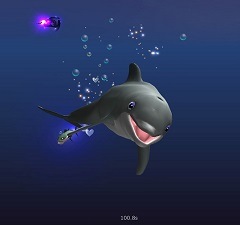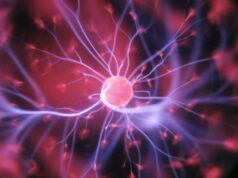
MindMaze—in partnership with the University of Auckland (Auckland, New Zealand)—has announced a new study that will aim to show the merits of early, immersive and intensive intervention to recover movement for patients who have experienced a stroke.
The Phase 2 trial, named ESPRESSo (Enhancing spontaneous recovery after stroke study), will evaluate the effect of the use of the company’s MindPod in a three-week programme of high-intensity, high-dose exploratory arm and hand movements initiated within two weeks of stroke on upper-limb motor capacity.
ESPRESSo is actively recruiting and, according to a MindMaze press release, is intent on orienting the medical community towards earlier intervention by demonstrating the marked benefits it can have following a stroke (both immediate and long-term).
The MindPod is a novel, immersive neuro-animation experience designed to promote the recovery of motor skill and cognitive function following a stroke, or other neurological injury or disease. The release says it was chosen for ESPRESSo as it takes a unique approach to brain repair: it is a holistic, multiscale intervention that simultaneously delivers a cognitive challenge, motor skill training and a cardiovascular workout.
This training “can be expected to lead to more generalised effects that are both cognitive and physical”, according to MindMaze.
“Research shows that an injured brain can get better, especially if the recovery work starts early. MindPod was designed with this knowledge in mind and the result is a high-dose, high-intensity solution that patients actually enjoy using,” said John Krakauer (Johns Hopkins University School of Medicine, Baltimore, USA), who is also chief medical advisor to MindMaze. “This immersive, reinforcing environment is key for motivation and therapy adherence, each of the utmost importance in particular in early recovery settings when morale is most challenged.”
In addition, the ESPRESSo trial is utilising a pioneering predictive tool that allows accurate predictions on recovery regarding three-month outcomes of upper-limb function by combining clinical and neurophysiological assessments.
Used in New Zealand-based hospitals, the tool is being validated in the USA, and is “a useful and unprecedented reference for physicians when guiding their patients through what can be expected during the recovery process and eventual outcomes”, MindMaze claims.
“What we are evaluating in the ESPRESSo trial is ambitious, multifaceted, and novel,” said principal investigator Winston Byblow (University of Auckland, Auckland, New Zealand). “Our aim is to show that there is a real, sound biological reason for urgency of intervention and that it directly correlates with improved outcomes for patients who have experienced a stroke. With the predictive tool, we are meeting each patient where they are, getting the goals right early and working with state-of-the-art, immersive technology to meet or exceed their predicted outcome.”
As per a separate press release, MindMaze also recently made five key appointments to strengthen and expand its global leadership team: Patricia Bradley as chief commercial officer; Sue Olsen as senior vice president and general manager for the USA; Shefali Shah as global vice president, market value and commercial effectiveness; Stefanie Scheurer as director of sales and general manager for Northern Europe; and Nils Ketelsen as vice president of finance.









